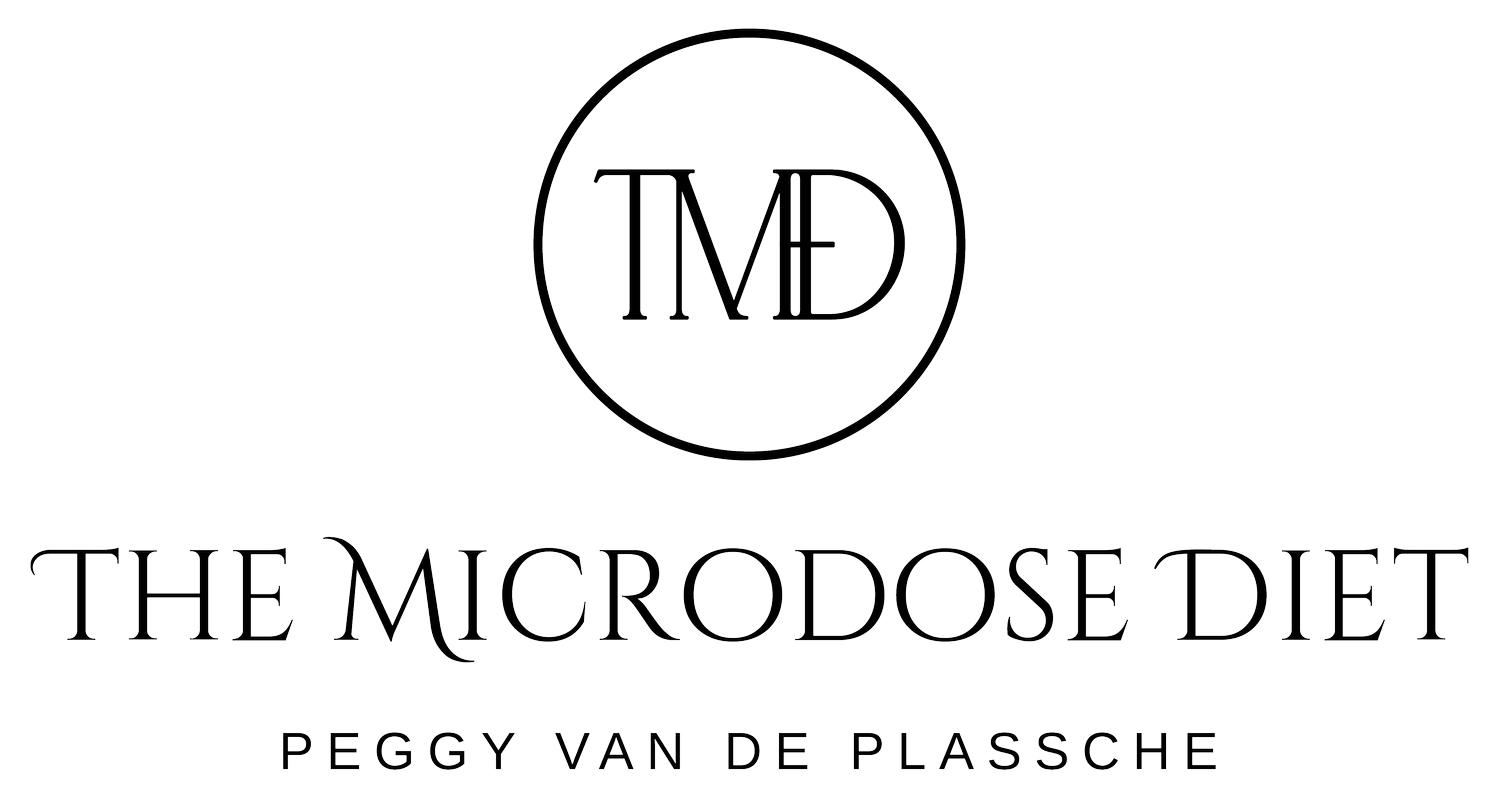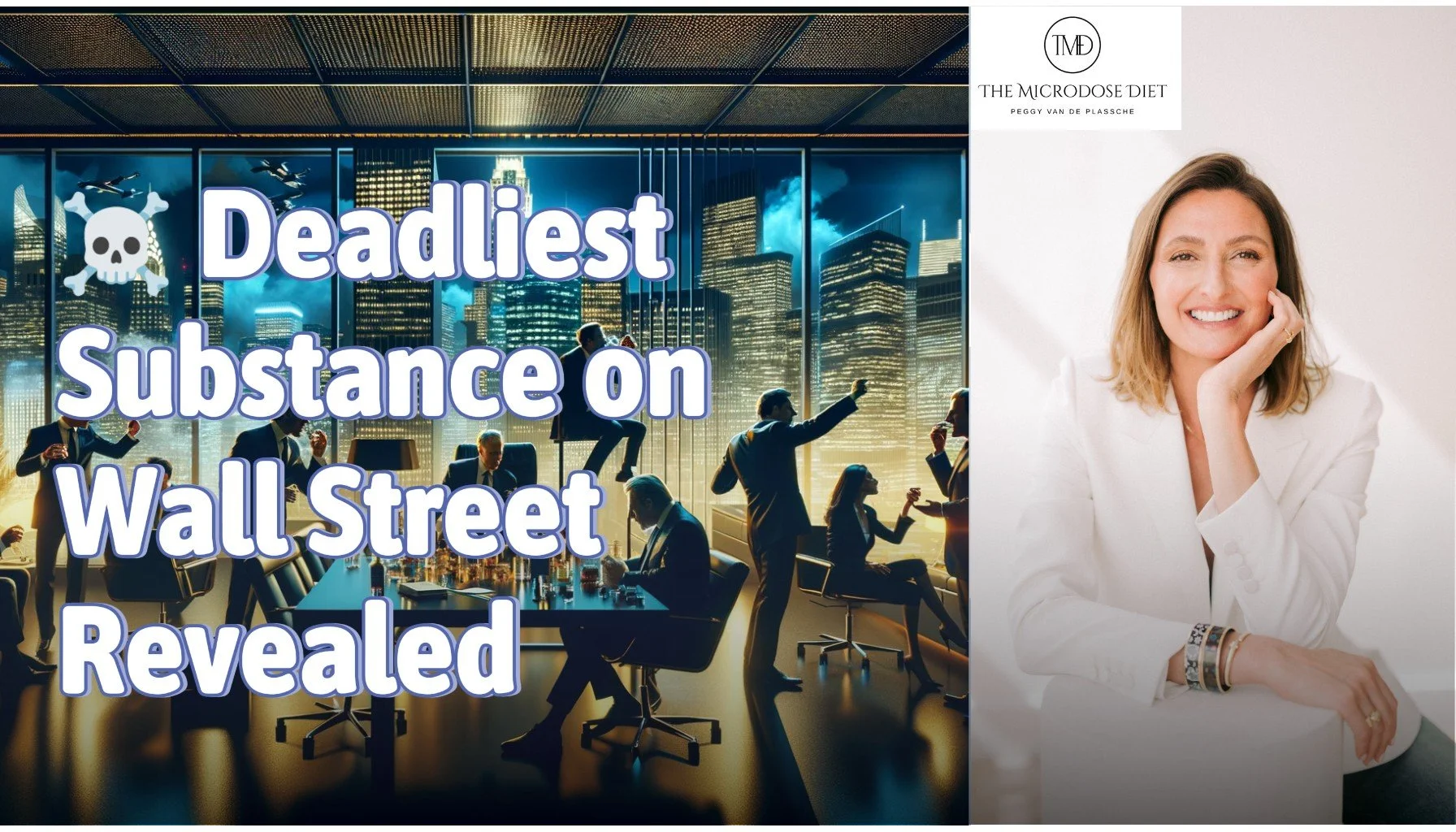☠️ Deadliest Substance on Wall Street Revealed: A Deep Dive into Corporate Abuse
Welcome back to "The Microdose Diet" newsletter, your trusted source for achieving success, passion, and happiness in life and career through alternative medicines like microdosing psychedelics. 🍄
🖋️Business Insider Exposé: A Reality Check on Wall Street's Drug and Alcohol Culture
Thanks to Business Insider's eye-opening article on Wall Street's drug and alcohol culture, today we're diving deeper into the realities behind these indulgences. A special thanks to Lina Ismail of The Catherine Wheel for flagging it!
🎥 VIDEO: The Hidden Vice of Finance
Subscribed
🏛️Wall Street's Illicit Love Affair with Drugs and Alcohol
The 1980s marked the peak of drug-related arrests in the finance world, with cocaine as the star. Fast forward to today, and while the face of Wall Street may seem cleaner, the culture of Adderall, alcohol, cocaine, and Zyn (nicotine pouches) remains deeply ingrained.
Cocaine, while less visible, still finds its way into the hands of some bankers. The rise of fentanyl, however, is causing a shift towards "safer" alternatives. Adderall, legally addictive, is the go-to for performance enhancement, and nicotine pouches like Zyn are gaining popularity for sustaining energy levels.
Subscribed
🙊The Dark Side of Success: Addiction on Wall Street
The relentless pressure and competitive nature of Wall Street have made addiction a significant challenge. Alcohol, a socially accepted vice, remains one of the most destructive substances, deeply embedded in the business and financial world.
💡 Brain Power Microdose: Productivity Without Harm
🏛️Beyond Wall Street: A Widespread Issue
It's not just Wall Street. The technology, entertainment, and hospitality sectors are also deeply affected by drug and alcohol abuse. Alarmingly, industries like mining and construction show the highest rates of heavy alcohol use, 17.5% and 16,5% respectively.
"Alcohol, a slow killer, often causes more destruction than fentanyl. It leads to risky behaviors, violence, and health problems. It's the silent deadly substance of Wall Street."
💰 The Economics of Addiction: Who Really Benefits?
The question of "Cui Bono?" or "To whom is it a benefit?" is crucial when understanding the drug and alcohol culture in corporate America. Is it the healthcare industry, alcohol manufacturers, financial services, or the government benefitting from this culture? Or are employees the ones taking the most risk?
We are not in conspiracy theory territory here. This is “just” the way the model was built, one step at a time. Everyone taking its pound of flesh, consolidating the system year after year. The ultimate question is: “When will we face the reckoning of turning a blind eye for so long?”.
Combine The Microdose Diet and The Brain Power Microdose for Optimal Performance and Mental Wellness.
🚬 A Century-Long Battle: The Tobacco Example
The fight against tobacco use highlights the slow response to health crises. It took almost a century from initial health warnings to significant legal actions against tobacco companies.
👮 Regulatory Blind Eye: Ignoring the Obvious
Despite the known dangers and societal costs of substance abuse, there's a lack of significant intervention. The profits from alcohol and drugs are privatized, while the costs are borne by society.
To put some numbers in perspective when it comes to alcohol:
In the United States, excise taxes on alcoholic beverages contributed over $10 billion USD to federal revenue in 2020.
State and local sales taxes also generate significant revenue from alcohol sales, with the exact figures varying by state.
The alcohol industry in the U.S. supported approximately 5.5 million jobs and generated nearly $600 billion USD in economic activity, including direct, indirect, and induced effects.
The economic costs of alcohol abuse in the United States were estimated at over $250 billion USD annually. This includes healthcare costs, lost productivity, and criminal justice expenses.
🧠 The Brain Power Microdose: Supporting Cognitive Health and Stress Relief
🤕 The Hidden Victims of Substance Abuse
Employees trading health for compensation, their families, taxpayers, shareholders, and society suffer from the consequences of this culture.
On one hand the costs of abuse and addiction are supported by society, while the profits are privatized by the industries providing the harmful substances (healthcare, alcohol, drugs industries).
Wall Street's underground culture of excess, from cocaine to prescription medications and alcohol, is a complex issue that needs addressing at multiple levels. Financial institutions must take proactive steps to support their employees' mental and physical well-being, while the healthcare system needs to address prescription drug abuse.
Additionally, society at large should reflect on the values and norms that contribute to this culture. Capitalism's relentless pursuit of success should not come at the cost of individuals' health and well-being. It is time to shed light on this dark side of Wall Street and work collectively to create a safer and more responsible financial industry.
Share Your Thoughts and Join the Conversation
After watching the episode, share your views in the comments! Also, listen to the episode on Spotify or Apple Podcasts.
😎 About The Microdose Diet
I'm Peggy Van de Plassche, a former banker and VC with 20 years in financial services and technology. "The Microdose Diet" combines alternative medicines like microdosing psilocybin for personal and professional growth.
Pre-order my book, "MORE! The Microdose Diet - the 90 Day Plan for Success, Passion, and Happiness," available on Amazon.
🧠 The Brain Power Microdose: Supporting Cognitive Health and Stress Relief
Thanks for reading, listening, and engaging. Follow me on Twitter & Instagram for more insights.
Remember, this newsletter is for entertainment and information. Always consult a medical professional for health advice. 🩺

